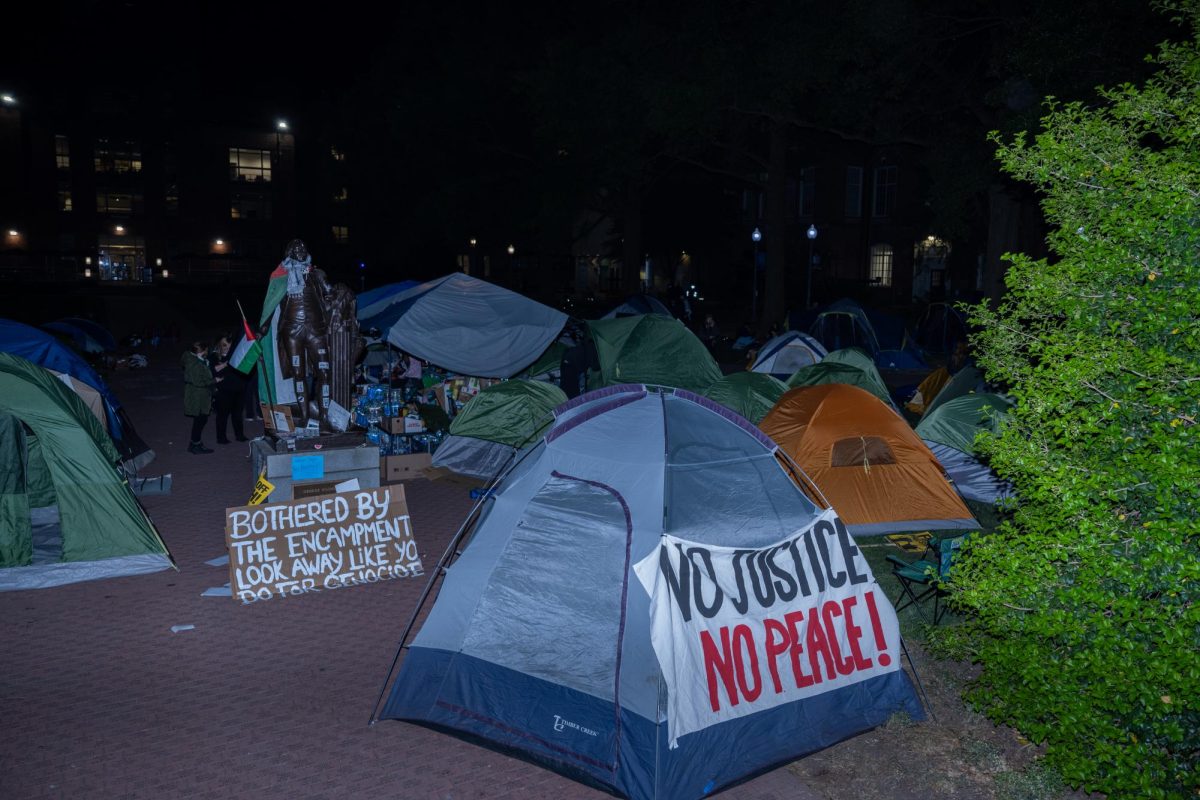At the beginning of the semester, then-senior Annie Wallace worked in the Department of Emergency Medicine at GW Hospital as a technician part time, assisting patients in critical condition resulting from cardiac issues to trauma.
But since mid-March, Wallace works from 7 a.m. to 7 p.m. every Friday, Saturday and Sunday as the number of COVID-19 cases swelled in the DMV. She said working at the hospital during the pandemic allowed her to witness firsthand how staffing needs increased to handle the influx in patients.
“At the beginning of our shift, we have what we call ‘take five,’ where we go through updates and protocols as reminders, and then we get bigger assignments,” Wallace said. “For every take five, there was a new update on the COVID protocol. How we were handling things was changing daily and even, hourly, in the middle of shifts at times.”
More than five students ranging from a hospital technician to a wholesale store clerk working as essential personnel during the pandemic said they have faced increased stress and responsibilities from their workplaces, requiring them to adapt to new “chaotic” environments with extra safety procedures. They said the added responsibilities have prompted them to ask their professors for assignment extensions to complete their coursework around their shifts at work.
Wallace said to save protective gear like N95 masks, technicians are now required to complete all initial preparations like dressing patients in one patient visit rather than spreading the preparations out to attend to several patients at once. She said patient visits can now last up to two hours, and all staff are required to wear a mask during the entire 12-hour shift.
“It’s super uncomfortable to have a mask on for the entire day and then having a mask – and an N95 mask isn’t a surgical mask – on top of that and then goggles or a face shield and a scrub cap and gown and shoe covers,” Wallace said. “It gets very hot very quickly.”
Addressing health concerns
Rising sophomore and EMeRG crew member Alex Hastava said he has worked with Huntington, New York’s first aid squad as an EMT crew leader since officials announced residence halls would close in March. Hastava said he worked 12 hours each week to prioritize school during the online learning period but is planning to increase his availability during the summer to help.
Hastava said the first aid squad is conducting contact tracing to help the Suffolk County Medical Control Agency, a volunteer ambulance service provided by Stony Brook University Hospital, to keep virus cases minimal. He said his county borders Nassau County, which is reported to have the most COVID-19 cases in the United States besides New York City.
“Our chief dispatcher just ran the numbers and we’ve had 500 calls in the past month alone, and in one of our record days in March, there were I think 36 calls in one day,” Hastava said.
Sophomore Amy Elsherbiny, a public health major working as an emergency department technician at the GW hospital, said she works 60 hours a week attending to patients with COVID-19, in addition to patients needing emergency assistance for conditions like strokes.
Elsherbiny said she has been exposed to more than 50 patients diagnosed with COVID-19, but the hospital takes many precautionary measures to protect staff and patients like placing patients diagnosed with the virus in separate waiting areas.
“Do I ever feel at risk of getting COVID? Sure, like all the time,” she said. “Am I worried that my work is not doing enough to protect me in that sense? I would say they’re doing everything that they can now.”
Elsherbiny said the experience of working in the emergency room during a pandemic has taught her to prioritize connecting with patients, who she said are more on edge with concerns of being infected.
She said she doesn’t have an extra 10 minutes to get to know her patients like she used to because she has to move quickly between many patients. But Elsherbiny tries to ask questions about their personal lives in the few minutes she does have to calm them down, she said.
“I’ve had days where I’ve had 20 people that I have to care for,” Elsherbiny said. “And I have two nurses and me, and we have 20 people between us, and it’s just an insane workflow to juggle.”
Balancing school and work
Albina Galimullina, a junior majoring in psychology, said she has had to balance working at a local ice cream shop and her uncle’s law firm as an office assistant in Baltimore, Maryland since classes moved online. Galimullina said she saw herself falling behind in her courses once she began to work 25 hours each week to support her family that had experienced unemployment due to the pandemic.
“It’s just insane how difficult this job is,” Galimullina said. “I come home, my back aches, my arm hurts, everything hurts and I just fall asleep early. So I have been falling behind with my school work.”
Galimullina said her night shifts end at 10 p.m., causing her to adjust her sleeping schedule to stay up until 3 a.m. to complete school work and sleep through her recorded lectures the following morning. She said she made sure to communicate with her “understanding” professors for extended deadlines on projects and exams whenever she felt overwhelmed.
“I was pretty honest with my professors, those two professors that I emailed, and thankfully, they were super considerate,” Galimullina said. “They both gave me all the extensions in time that I needed.”
Olympia Victor, a sophomore majoring in international affairs, said she works as a cashier at BJ’s Wholesale Club for more than 20 hours each week in East Rutherford, New Jersey. She said for the past couple of months, she worked the job on top of her now-completed internship and federal work study position both for the Colombian College of Arts and Sciences.
She said she struggled with time management because she had to organize her time around her work schedule to complete her coursework.
She said her FWS position in the CCAS counseling office required her to remotely scan documents, but she was unable to work more than a few hours each week because of her “inconsistent” schedule at BJ’s. She said her professors were understanding of her situation and gave her flexible deadlines to complete her remote work.
“I think for me, just because I knew that office I worked in on campus, everyone was very understanding,” Victor said. “When I cut down on the time, they were very understanding of that.”








